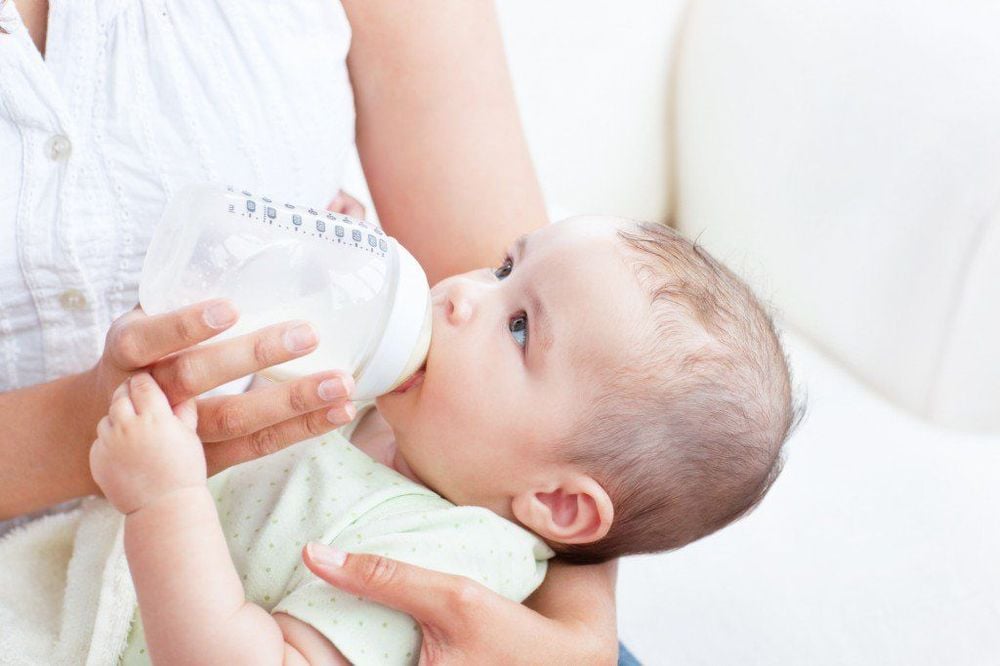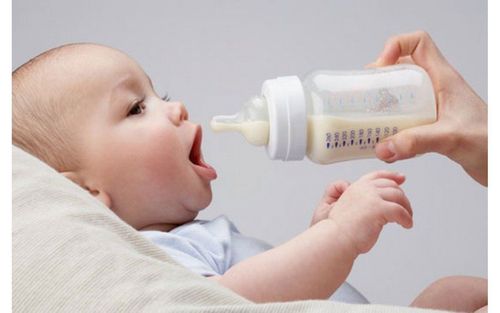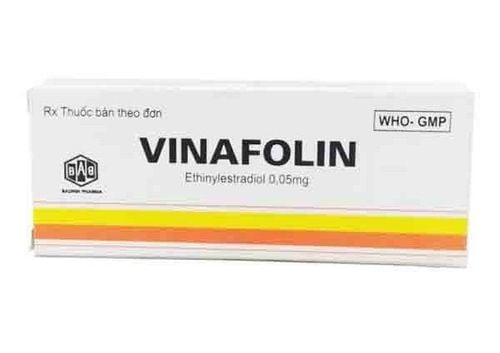This is an automatically translated article.
The article was professionally consulted by Dr. Phan Nguyen Thanh Binh - Head of Nutrition - Dietetics Department - Department of Pediatrics - Neonatology, Vinmec Central Park International General Hospital.Weaning is a huge turning point in your baby's development. Therefore, to overcome the baby's turning point smoothly and successfully, the mother should pay attention to the proper care of the baby after weaning, pay attention to the baby's nutrition, to ensure the best development of the baby.
1. When can babies wean from breast milk?
Normally, for the first 6 months, mothers should exclusively breastfeed their babies. Breast milk not only ensures optimal nutrition for the digestive system and comprehensive development of the baby, but also provides factors that strengthen the baby's immune system that no other food can replace. After the 6th month, when the baby's digestive system is ready and the baby's nutritional needs increase, the mother should start giving the baby solid foods. By the 12th month, many mothers have already started weaning their babies. However, according to the recommendations of nutritionists, it is best to wean the baby when the baby is 18-24 months old.2. Common baby diseases after weaning
After weaning a baby, parents can see strong growth when their baby is exposed to a new source of nutrition. However, besides that, there will also be potential risks of many childhood diseases.Digestive system disorders After weaning, the baby is very susceptible to digestive disorders, because of the high possibility of bacterial infection from food, water or toys... is severe diarrhea or constipation, accompanied by vomiting, nausea, bloating and indigestion...
Respiratory tract infection The period after weaning, the baby stops receiving antibodies from the mother, while continuing to continue the treatment. More exposure to the outside environment, this is the main cause of the baby experiencing bacterial infections affecting the respiratory system, specifically: runny nose, sore throat, bronchitis, amygdaleneitis,...
Malnutrition In many cases, after weaning the baby, the child becomes anorexic, unable to adapt to the new diet, leading to growth retardation, stunting, slow growth in both weight and height.. which leads to malnutrition, rickets, and affects later adult development.
Children who are malnourished, have poor resistance, are susceptible to respiratory or digestive tract infections. From there, a vicious circle of diseases is formed: malnutrition, rickets -> reduced resistance -> infections -> malnutrition, rickets.

Rất nhiều trường hợp, sau khi cai sữa cho bé, con trở nên biếng ăn
3. Disease prevention in babies after weaning
Because after weaning, children are prone to diseases like these, so parents need to pay attention to prevent their children as soon as possible, so that their children can develop comprehensively later.Exclusive breastfeeding Nutrition experts always remind, breast milk is always the best source of nutrition and nutrition for babies. Breast milk is rich in soluble fiber, making the digestive system work easily, and at the same time increasing intestinal motility, babies who are exclusively breastfed rarely experience constipation. Especially in the first days of life, when the immune system of the baby is still immature, the source of colostrum contains antibodies from the mother to help the baby to be protected and against infectious agents.
If there is enough milk, it is best for the mother to let the baby eat exclusively breast milk for the first 6 months of life, no need to combine any other formula milk, and no need to add water.
Keeping a healthy living environment To help children develop healthy, parents should make sure to clean the surrounding living environment and keep the house clean. Follow the principle of feeding the baby cooked food, drinking boiling water and washing hands often with soap for babies, especially washing hands before eating and after going to the toilet.
Improve daily nutrition Provide and supplement your baby with adequate nutrition, which is balanced for each age. The baby's diet must be full of green vegetables, fruits, vitamins and many essential nutrients.
Treating bacterial infections early If the baby is unlucky enough to have an infection, the digestive or respiratory system must take the child to the doctor immediately, get timely treatment, to avoid aggravating the disease, affecting health and development. comprehensive child.
Strengthening resistance The time after weaning, many body functions inside the baby have not been completed, and the immunity is not developed enough. Therefore, to help children strengthen their resistance, mothers should supplement with vitamins and essential nutrients to strengthen the immune system of their children.
4. Baby care after weaning

Sau khi cai sữa thành công cho bé, việc quan trọng là mẹ cần bổ sung sữa công thức giàu dưỡng chất
Mother should wean the baby slowly. The first is to gradually reduce the feedings during the day, then each feeding will be faster and shorter. Mothers can also take advantage of the support from loved ones every time their baby is bottle-fed as well as full-time weaning, taking care of and being closer to the baby.
Replace with formula After successfully weaning the baby, it is important for the mother to supplement with nutrient-rich formula suitable for the baby's age. If your baby eats 2 meals/day, he needs to drink at least 800 ml of milk per day, if he eats 3 meals/day, he needs to drink at least 600 ml of milk per day.
For babies 6 months to 2 years old, during the weaning period, mothers need to give their children adequate nutrients, and the dosage according to each child's ability, however, milk must still be a source of additional energy and nutrition. the most important nutrition
Nutritional supplements in the diet Mothers should introduce their children to solid foods from the time they are 6 months old. You can start from eating thin gradually to solid, eat less and gradually increase the portion, along with a variety of foods. Babies from 6 months should eat 2 meals a day, and babies over 9 months, should increase 3 meals a day.
Babies need to be fortified with nutrients in their daily diets to ensure that they do not lack essential nutrients. Pay attention to the baby's daily diet must be balanced, varied, use foods that are easy to digest, absorb, rich in fiber, help strengthen immunity such as milk, yogurt, meat, fish, eggs , vegetables, fruits. Mothers need to expose babies to sunlight early or give them Vitamin D supplements every day to prevent rickets.
Notes to take care of the baby after weaning:
To ensure nutrition for the baby after weaning, the mother should pay attention to the following issues:
Monitor weight After weaning, the mother should regularly Monitor your baby's weight. If you find that your baby is slow to gain weight, you must review your baby's diet as well as the baby's ability to absorb it.
Do not force your child to eat When weaning, don't force your baby to eat too much, it will make your child feel uncomfortable, easy to vomit, spit up and have a fear of eating. For your baby to eat deliciously, divide them into many meals a day so that they are easy to eat, not bored and often change the menu for them. Pay attention to processing to suit your baby's taste and change the dishes often so that your baby can eat all of them. You can stimulate your baby's interest in food by letting her participate in the family meal.
Age-appropriate food Most children at weaning age have teeth, but chewing muscles have not fully developed, so they are still weak, the function of the digestive system is not as complete as adults, so baby food It is necessary to cook soft, soft, and well cooked so that the baby does not choke, well absorbed and easy to digest.
After weaning, parents need to pay special attention to their child's diet to ensure adequate nutrition. It is possible to add lysine, essential micro-minerals and vitamins such as zinc, chromium, selenium, and B vitamins to help meet the needs of nutrients, aid digestion, and enhance nutrient absorption. help improve anorexia, help children eat well.
As a key area of Vinmec Health system, Pediatrics Department always brings satisfaction to customers and is highly appreciated by industry experts with:
Gathering a team of top doctors and nurses in Pediatrics : consists of leading experts with high professional qualifications (professors, associate professors, doctorates, masters), experienced, worked at major hospitals such as Bach Mai, 108.. Doctors All doctors are well-trained, professional, conscientious, knowledgeable about young psychology. Besides domestic pediatricians, the Department of Pediatrics also has the participation of foreign experts (Japan, Singapore, Australia, USA) who are always pioneers in applying the latest and most effective treatment regimens. . Comprehensive services: In the field of Pediatrics, Vinmec provides a series of continuous medical examination and treatment services from Newborn to Pediatric and Vaccine, ... according to international standards to help parents take care of their baby's health from birth to children. from birth to adulthood Specialized techniques: Vinmec has successfully deployed many specialized techniques to make the treatment of difficult diseases in pediatrics more effective: neurosurgery - craniofacial surgery, stem cell transplantation. blood in cancer treatment. Professional care: In addition to understanding children's psychology, Vinmec also pays special attention to the children's play space, helping them to play comfortably and get used to the hospital environment, cooperate in treatment, improve the efficiency of medical treatment. TS.BS. Phan Nguyen Thanh Binh has more than 15 years of experience in nutrition treatment-intervention, nutrition training-training, and has many scientific studies on the relationship between nutrition-lifestyle-health. published in national and international scientific journals. Dr. Thanh Binh is currently the Head of the Department of Nutrition and Dietetics, Vinmec Central Park International General Hospital.














